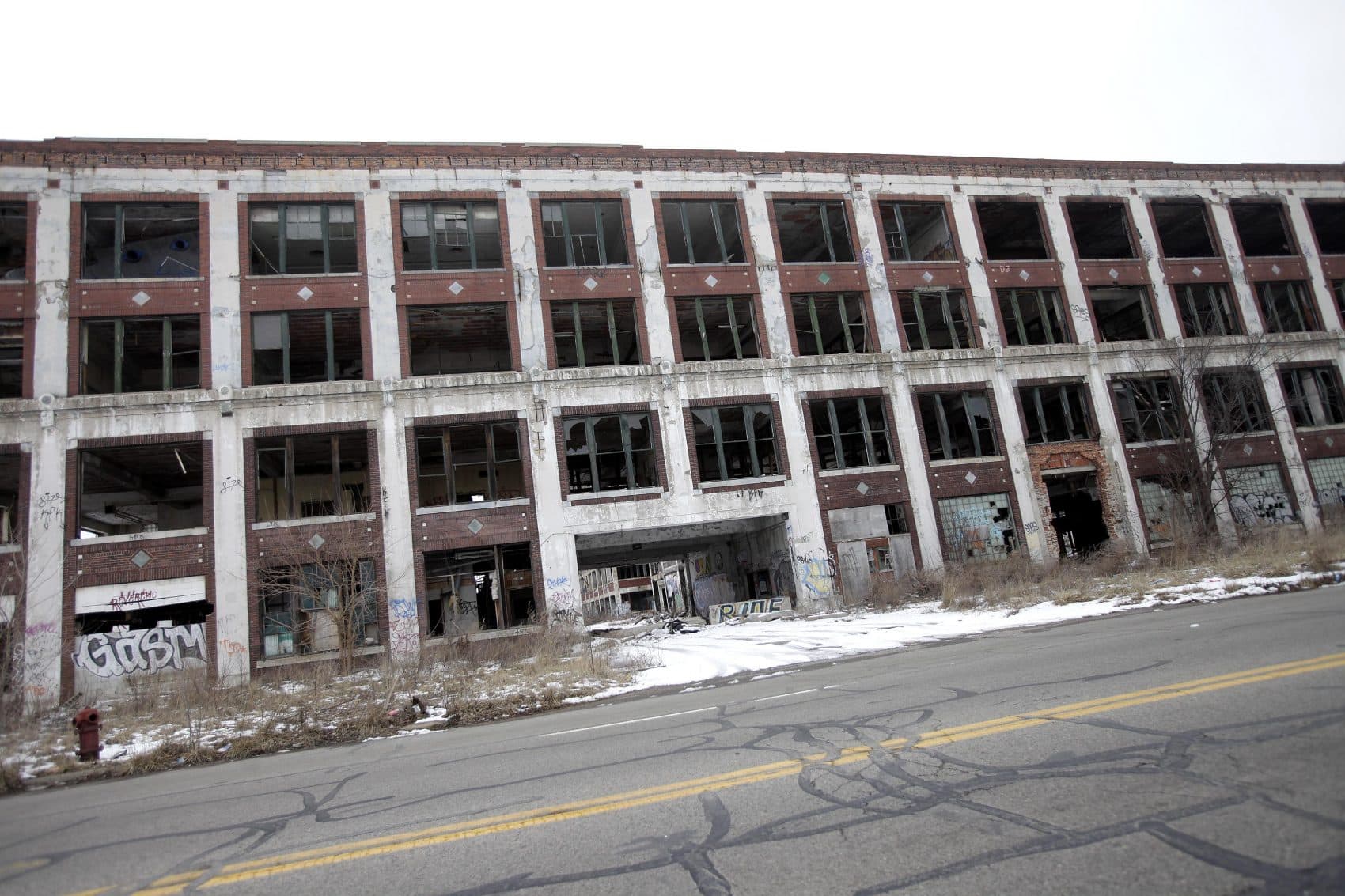Advertisement
Amid Manufacturing Shifts, Should Working-Class Men Consider Non-Traditional Roles?

Sledgehammers, axes and dirty coveralls come to mind when you think of so-called "manly work." But are those jobs going away?
Here & Now's Robin Young talks with Lance Compa, professor at Cornell University's Industrial and Labor Relations School, about President Trump's campaign promises and manufacturing jobs in the U.S.
Interview Highlights
On the state of manufacturing jobs in the U.S.
"The death of manufacturing is greatly exaggerated. It's true that it's declined as a share, as a percentage, of the overall economy, and as a percentage of the labor force. But there are still 12 million manufacturing jobs in the United States — you drive along the interstate highways, and you'll see big manufacturing facilities all over the country. The other thing is that, at any given moment in time — including right now, I just looked it up — there are 300,000 openings in manufacturing, job openings, for applicants, and the manufacturing sector is actually doing quite well, and could do even better if the plans for infrastructure improvements come into place."
On disconnect over the number of manufacturing jobs available
"I don't wanna exaggerate it in the other direction either. The thing is there's a skills match that needs to be achieved. My own background, as an example, when I was growing up in Rochester, New York, 50,000 people worked for Eastman Kodak. Now it's about 1,000. Does that mean that 49,000 people went out on the street, with nothing? No, in fact, the engineers and other people that had worked for Kodak started up dozens and dozens of smaller, specialized companies, and they hire a lot of people. Those jobs in manufacturing can be there, but you can't just walk out of high school with a high school degree and nothing else, and get a good manufacturing job. There is a skills need, and it doesn't mean they have to be licensed electricians or plumbers or something. There are a lot of men, working-class men... they don't have the knack for school, the patience to sit down, and they don't do standardized tests well. But they're smart, and they're resourceful, and they can find careers in these niche manufacturing markets, I think."
Advertisement
"It would be a terrible thing, I think, if there were millions of opportunities for men to swing sledgehammers."
Lance Compa
On "new working class" issues
"Pick the minimum wage for example, I think it's vitally important to increase the minimum wage across the country — and we see it being done all over the country, at the state and local levels. We still need a substantial increase in the federal minimum wage. But for a lot of working class men, working at a minimum-wage job is insulting, and family leave is important, but there are still a lot of people in traditional family settings — and it might be great if the woman in the relationship, or one woman in the relationship, can get time off and so on — but the men are interested in going out to work and support their family. I think that has to be recognized, and again, it comes down to making the jobs that working class men can now get into, and it's a good thing that it's not all heavy labor — in fact, working-class men call it 'bull work' — there's not so much 'bull work' anymore. And that's a good thing. And I think working-class men need to get over some of the hangups and the traditionalist notions, and be ready to go into caring professions. There are a lot of jobs in nursing homes and care facilities and hospitals that actually do require a lot of physical strength."
On romanticizing physical labor
"I don't accept that there are all these guys out there that wanna swing a sledgehammer. There might be some, but if the only... it would be a terrible thing, I think, if there were millions of opportunities for men to swing sledgehammers. It's just not gonna happen, this vision that Donald Trump has of bringing back the steel mill that employs 30,000 people is completely ridiculous.
"...The thing is, I mean I'm happy that the sledgehammer jobs aren't there anymore, because for one thing, bodies would break down — the working-class men who were strong in their 20s and 30s, their bodies would break down by the time they're in their 40s, and then you're talking about disability, and social security..."
This article was originally published on February 14, 2017.
This segment aired on February 14, 2017.